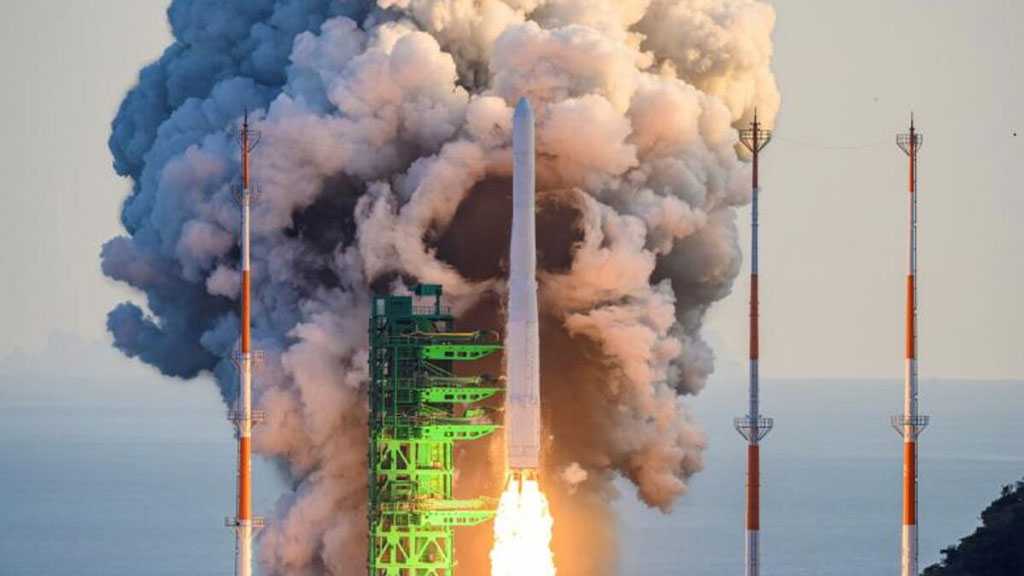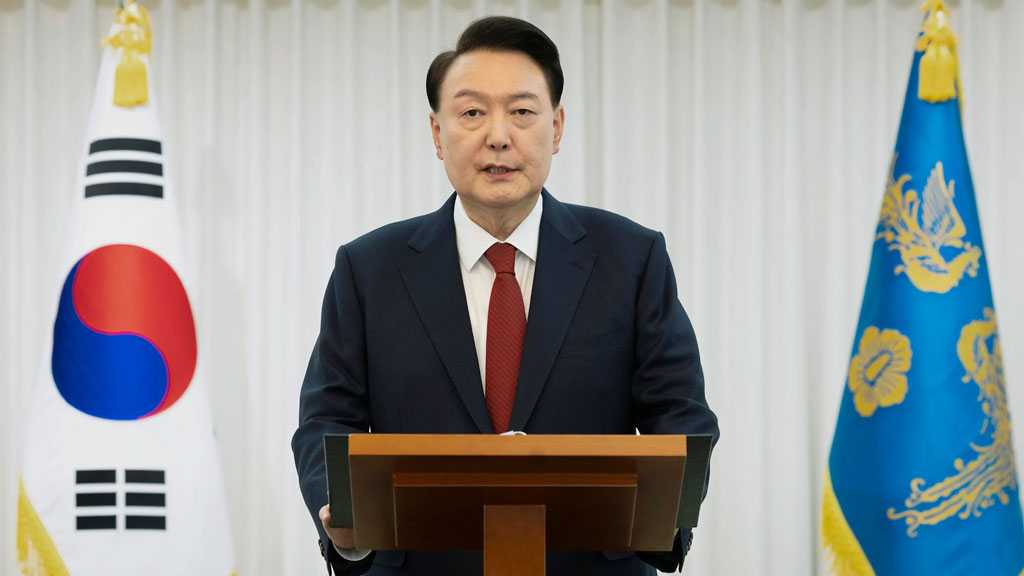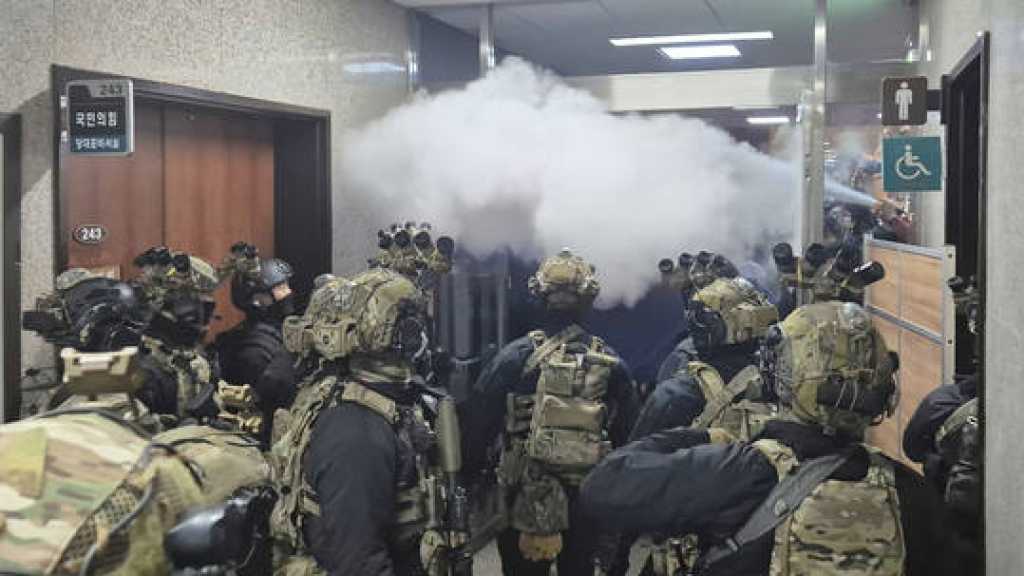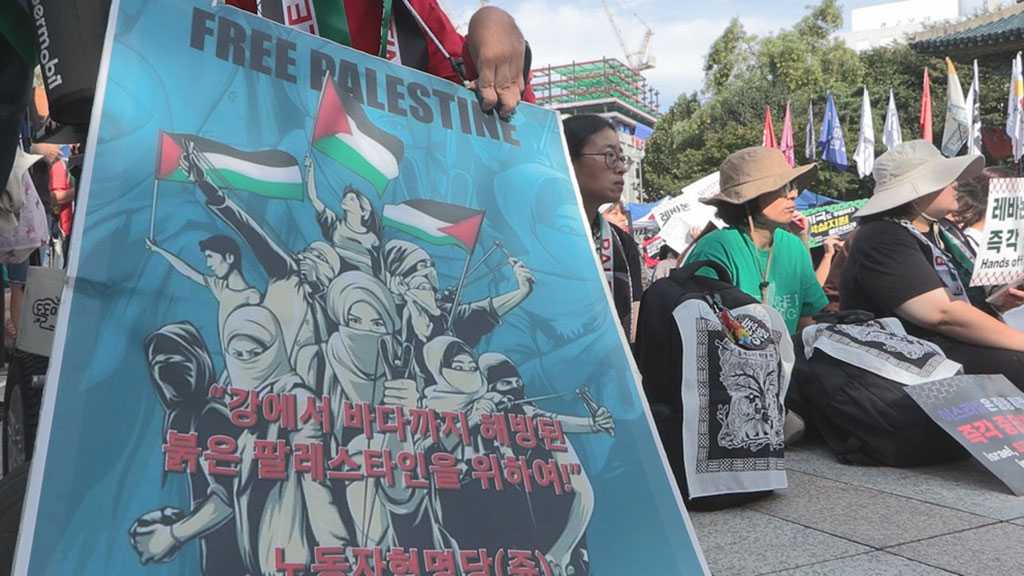
S Korea Tests Solid-Fuel Space Rocket, Amid Rising Tensions

By Staff, Agencies
South Korea has said it conducted its first successful launch of a solid-fuel rocket in what it called a major step towards acquiring space surveillance capability amid rising tensions on the divided peninsula.
Wednesday’s launch took place six days after North Korea said it carried out its first intercontinental ballistic missile [ICBM] test since 2017, the latest in a flurry of weapons tests since the start of the year.
South Korea currently has no military reconnaissance satellites of its own and depends on the United States’ spy satellites to monitor strategic facilities in North Korea.
Pyongyang has carried out a series of weapons tests since the start of the year, and a week ago tested what it said was a new ICBM. The launch ended a self-imposed moratorium on big weapons tests, broke UN Security Council resolutions and has raised concerns the country might next resume nuclear weapons testing.
Suspicions have since been raised about the ICBM with the South concluding earlier this week that it was a previously-tested Hwasong-15, rather than the bigger, longer-range Hwasong-17 Pyongyang claimed to have been tested by the North. The missile flew farther and longer than any previous North Korean launch, placing all of the mainland US within potential striking distance.
“Coming at a very grave time following North Korea’s lifting of the weapons tests moratorium, this successful test-launch of the solid-fuel space launch vehicle is a key milestone in our military’s efforts to [build] a unilateral space-based surveillance system and bolster defence capability,” the South Korean statement said.
Seoul secured US permission to use solid fuel for space launch vehicles in 2020, removing a 20-year mutually-agreed restriction over concerns that the use of the technology could lead to bigger missiles and trigger a regional arms race.
Last year, the United States lifted other remaining restrictions to allow South Korea to develop missiles with unlimited ranges.
Lee Choon Geun, an honorary research fellow at South Korea’s Science and Technology Policy Institute, said the development of the solid-fuel rocket would also contribute to improving South Korea’s missile technology, as ballistic missiles and rockets used in satellite launches share similar bodies, engines, and other technology.
Lee said solid-fuel rockets are typically used to launch small satellites because they have weaker thrust force than similar-sized liquid-fuel rockets. He said bigger satellites can carry larger cameras that produce higher-resolution imagery.
South Korea launched its first domestically-produced liquid-fuel space rocket, the NURI, last October. The three-stage rocket, emblazoned with South Korea’s flag and carrying a dummy satellite, blasted off successfully and reached its desired altitude but failed to deliver the satellite into orbit.
There was no immediate response from North Korea on Seoul’s latest rocket launch.
It previously called the US’s decision to lift the missile restrictions on South Korea an example of Washington’s hostile policy towards North Korea.
Comments
- Related News

South Korea’s Ruling Party Chief Steps down
25 days ago

